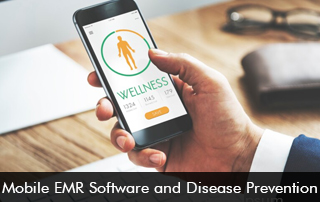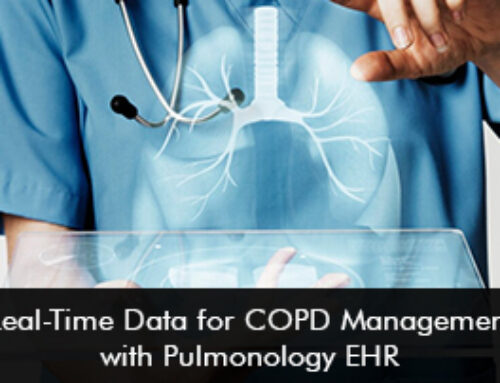Among these technological advancements, mobile EMR software has emerged as a key player in enhancing patient care and aiding in disease prevention. This article delves into the role of mobile EMR software in healthcare and how it is becoming an indispensable tool for medical professionals and patients alike.
The Rise of Mobile Health and Telemedicine
Mobile health refers to the use of mobile devices to support public health and medical practices. Smartphones, tablets, and other mobile platforms have become powerful tools for doctors, nurses, and patients, enabling access to health information on the go, thus improving the efficiency and quality of care.
Mobile EMR offers unparalleled accessibility. Clinicians can access patient records, review lab results, and update treatment plans from anywhere, at any time. This ease of access is crucial in emergency situations or when quick decision-making is required.
Mobile health technologies also empower patients to take an active role in their own health. With mobile apps that integrate with EMR systems, patients can monitor their health indicators, manage chronic conditions, and stay informed about their treatment plans, contributing to better disease prevention and management.
Telemedicine Solutions and Disease Management
Telemedicine solutions, which include mobile EMR software, have been game-changers in disease management and prevention. They enable remote consultations, follow-up visits, and real-time monitoring of patients, which is especially beneficial for those with limited mobility or living in remote areas.
EMR Software Remote Monitoring and Early Detection
Telemedicine allows healthcare providers to monitor patients’ health remotely, leading to early detection of potential health issues. With the help of mobile EMR software, providers can quickly identify trends and anomalies in patient data that may indicate the onset of a disease, enabling timely interventions.
Chronic Disease Management
For patients with chronic illnesses, mobile EMR software facilitates regular monitoring and adjustments to treatment without the need for frequent in-person visits. This not only reduces the strain on healthcare facilities but also helps in managing diseases more effectively.
Mobile EMR Software – Features and Benefits
Mobile EMR software comes packed with features designed to streamline healthcare delivery and improve patient outcomes.
Real-Time Data Access
Healthcare professionals can access patient data in real time, allowing for informed decision-making and better coordination of care. This immediacy helps in preventing complications and managing ongoing health issues more effectively.
EMR Software Secure Communication Channels
Secure messaging within mobile EMR software ensures that patient data remains confidential while allowing for efficient communication between care team members, which is vital for coordinated care and disease prevention strategies.
Integrated Care Plan Management
Mobile EMR systems enable the creation and management of integrated care plans, ensuring that all members of the healthcare team are on the same page regarding patient treatment and prevention measures.
Implementing Mobile EMR Software in Clinical Practice
The implementation of mobile EMR software in clinical settings involves careful planning and consideration of various factors to ensure its success and effectiveness in disease prevention.
Training and Support
Proper training for medical staff is essential for the effective use of mobile EMR software. Adequate support and resources must be provided to ensure a smooth transition and to address any technical challenges that may arise.
EMR Software Data Privacy and Security
Ensuring the privacy and security of patient data is paramount when implementing mobile EMR solutions. Compliance with regulations such as HIPAA in the United States is critical to protect sensitive health information.
Integration with Existing Systems
Mobile EMR software should seamlessly integrate with existing healthcare systems to minimize disruptions and maintain continuity of care. Interoperability between different platforms and devices is necessary for the efficient exchange of health information.
Challenges and Considerations
While mobile EMR software offers numerous benefits, there are also challenges that need to be addressed to maximize its potential in disease prevention.
EMR Software Addressing Digital Divide
The digital divide can affect the adoption of mobile EMR software, as not all patients may have access to the necessary technology. Efforts must be made to ensure that these tools are accessible to a diverse patient population.
Keeping up with Technological Advances
The rapid pace of technological change requires that mobile EMR systems are regularly updated to incorporate the latest features and security measures. This necessitates ongoing investment and commitment from healthcare organizations.
Balancing Technology with Human Touch
While technology can enhance healthcare delivery, it is essential to balance it with the human touch that is integral to patient care. Personal interactions should not be overshadowed by technological interfaces.
The Future of Disease Prevention with Mobile EMR Software
As mobile EMR continues to evolve, its potential to transform disease prevention and healthcare delivery grows. With the integration of advanced analytics, artificial intelligence, and machine learning, these systems will become even more sophisticated, providing deeper insights into patient health and enabling more proactive approaches to disease prevention.
EMR Software Predictive Analytics
The incorporation of predictive analytics into mobile EMR software can help identify patients at risk of developing certain conditions, allowing for early intervention and tailored prevention strategies.
Personalized Medicine
Mobile EMR software will play a crucial role in the advancement of personalized medicine, where treatments and preventive measures are customized based on an individual’s genetic makeup, lifestyle, and other factors.







